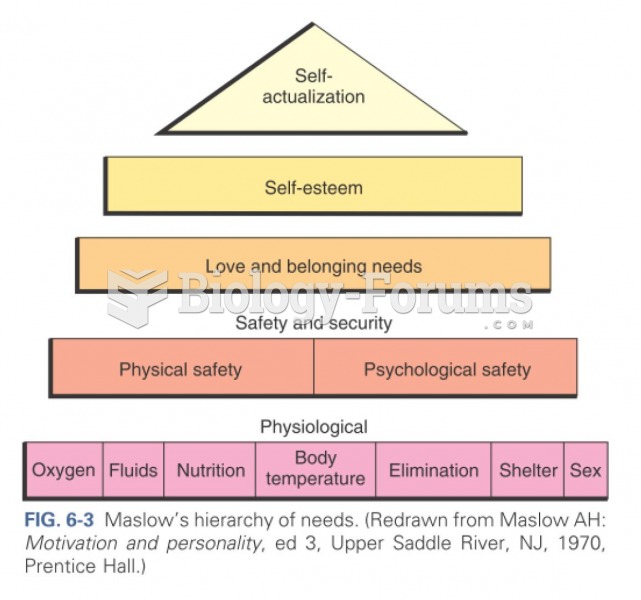|
|
|
As many as 28% of hospitalized patients requiring mechanical ventilators to help them breathe (for more than 48 hours) will develop ventilator-associated pneumonia. Current therapy involves intravenous antibiotics, but new antibiotics that can be inhaled (and more directly treat the infection) are being developed.
Pubic lice (crabs) are usually spread through sexual contact. You cannot catch them by using a public toilet.
The immune system needs 9.5 hours of sleep in total darkness to recharge completely.
More than 150,000 Americans killed by cardiovascular disease are younger than the age of 65 years.
The oldest recorded age was 122. Madame Jeanne Calment was born in France in 1875 and died in 1997. She was a vegetarian and loved olive oil, port wine, and chocolate.







